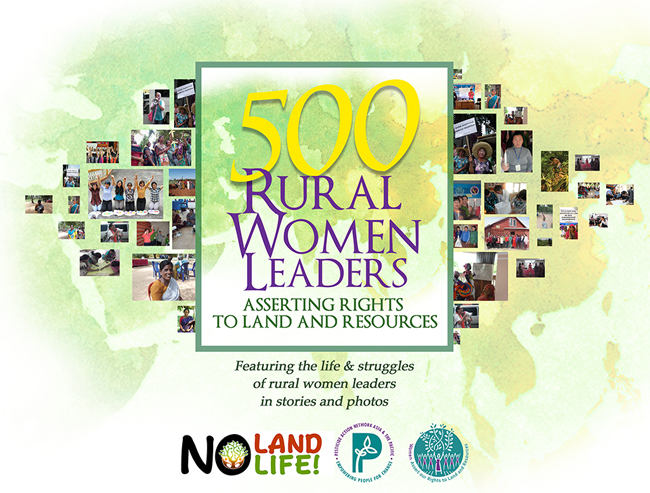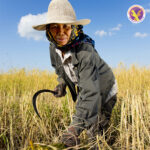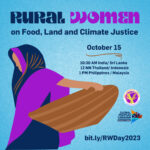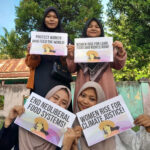In time for International Working Women’s Day 2016: Stories of 500 Rural Women Leaders Launched – Women’s stories assert rights to land and resources
“We’ve learned that mining companies are after the rich minerals and biodiversity found in our communities. As a result, our ancestral domain is being grabbed and encroached by greedy businessmen and foreign companies…We still have the same problems my parents faced three decades ago. And we confront these problems like they did: we fight!”
The story of Gertrudes Layal, a Lumad leader from Mindanao, Philippines finds resonance with other women’s stories from other countries in Asia, particularly Philippines and Malaysia. These women are at the forefront of the battle against land grabbing by their states, usually for transnational corporations’ interests in mining, agricultural plantations and energy. Their stories are part of a collection of 500 rural women leaders’ stories being launched online today by PAN Asia Pacific and its partner organisations, in time for International Working Women’s Day 2016.
With the theme “500 Rural Women Leaders: Asserting Rights to Land and Resources”, the collection features the life, struggles and triumphs of current rural women leaders. Their stories speak of a wide range of issues facing rural women today, such as poverty, land grabbing, landlessness, lack of jobs and livelihoods, lack of basic social services, climate change, gender discrimination and violence and caste discrimination and violence, to name a few.
But rural women are fighting back, at the forefront of their communities and side-by-side with men. The stories narrate how the women organize themselves into groups, associations or join existing women’s groups to advance common concerns and cause; how they creatively raise awareness through education, trainings and mass campaigns; how they collectively take action through petitions, dialogues, demonstrations and strikes; and how they find viable alternatives in the midst of long-drawn struggles, such as ecological farming against use of pesticides and chemical fertilisers, or land occupation and collective farming against landlessness and land grabbing by the state.
As Aravalli, a Dalit widow from Ananthapuram, Andra Pradesh, India narrates in her story: “On 1st November, the eve of Andhra Formation Day when the government is celebrating, we collectively occupied the land and planted Ragi (finger millet). When the landlord came with police and revenue officer, I told them that this land belongs to all of us because we are poor and eligible to cultivate the land…The landlord and police held back as we already have the caveat from the court. Although the case is still on-going, land is in our hands.”
Aravalli and Gertrudes’ stories and the rest of the women’s narratives represent 18 countries from 29 partner groups in South Asia (Bangladesh, India, Pakistan, Sri Lanka); Southeast Asia (Cambodia, Indonesia, Malaysia, Philippines, Thailand, Vietnam), East Asia (China), Central Asia (Kyrgyzstan, Mongolia, Tajikistan), Pacific (Fiji), and Africa (Senegal, Ghana, Ethiopia).
The collection of stories come under the PAN Asia Pacific campaign “No Land, No Life” and is a continuation of the 16 Days of Global Action on Rural Women, both launched last year. It aims to document and highlight the leadership and importance of rural women, draw lessons from their failures and victories, and inspire others especially the new generation of women, with the collective strength and leadership of rural women.
To read the stories, click the link: http://www.panap.net/campaigns/women-assert-our-rights/500-rural-women-leaders
Reference: Marjo Busto, PAN Asia Pacific, ARWC Secretariat, marjo.busto@panap.net








